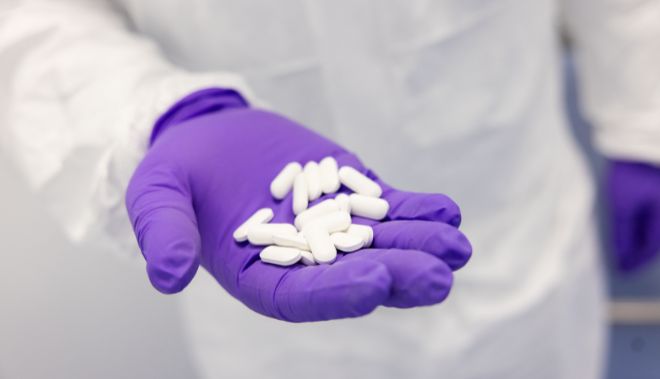An Overview of Clinical Supplies in FIH Trials
Manufacturing clinical supplies for a first-in-human (FIH) trial is a crucial milestone in drug development. It requires careful planning to ensure investigational medicinal products (IMPs) are produced, packaged, and delivered to clinical sites efficiently and in compliance with regulations. This process must address challenges such as formulation development, supply chain logistics, and regulatory requirements.
Key Considerations in Planning
Active Pharmaceutical Ingredient (API) Availability: Securing a reliable source of high-quality API is fundamental. Early engagement with suppliers helps mitigate risks related to delays or shortages. Assessing the scalability of API production is essential to meet both current and future trial demands
Formulation Development: Developing a suitable dosage form that ensures optimal bioavailability and stability is crucial. This involves selecting appropriate excipients and manufacturing processes tailored to the physicochemical properties of the API. Conducting excipient compatibility studies can pre-empt stability issues.
Analytical Method Development: Establishing robust analytical methods for quality control is necessary. These methods should be validated to ensure they provide reliable data on the identity, purity, and potency of the IMP.
Regulatory Compliance: Understanding and adhering to regulatory requirements is imperative. This includes compiling comprehensive Chemistry, Manufacturing, and Controls (CMC) documentation for regulatory submissions. Engaging with regulatory authorities early can clarify expectations and streamline approvals.
Manufacturing Logistics: Planning the scale of manufacturing operations to align with trial phases is important. Phase I trials typically require smaller batches, but it’s prudent to consider scalability for subsequent phases. Establishing clear timelines for production, packaging, and labelling ensures readiness for trial initiation.
Supply Chain Management: Implementing a robust supply chain strategy ensures timely delivery of IMPs to clinical sites. This includes coordinating packaging, labelling, and distribution while maintaining product integrity throughout the supply chain. Understanding import/export regulations and ensuring compliance is also critical.
Risk Mitigation Strategies in FIH Supply Planning
Identifying and addressing potential risks in FIH supply planning is crucial to ensure trial success. Implementing a risk assessment to evaluate all aspects of the supply chain helps identify vulnerabilities. This includes assessing supplier reliability, transportation risks, and storage conditions.
Developing contingency plans for critical processes, such as qualifying secondary suppliers, can mitigate the impact of potential disruptions. Regular monitoring and audits of suppliers and logistics partners ensure compliance with quality standards and help identify areas for improvement. Maintaining open lines of communication with all stakeholders allows for prompt issue resolution and implementation of corrective actions.
Phase 1 clinical trials play a vital role in assessing the safety and tolerability of a new treatment. These trials involve a small number of patients or healthy volunteers and are designed to collect preliminary data on the drug’s pharmacokinetics, dosage range, and potential side effects.
Regulatory Trends Impacting FIH Trials
Staying informed about regulatory trends is essential for compliance and successful trial execution:
- Enhanced Safety Protocols: Regulatory bodies are increasingly focusing on stringent safety measures. Ensure your trial designs incorporate comprehensive safety assessments and monitoring plans.
- Transparency and Data Integrity: There is a growing emphasis on data transparency and integrity. Implement robust data management systems to maintain accurate and accessible records.
- Adaptive Trial Designs: Regulators are showing openness to adaptive trial designs that allow modifications based on interim results. Consider incorporating adaptive elements to enhance trial efficiency.
Cost-Effective Approaches to FIH Manufacturing
Balancing quality and cost is vital in FIH manufacturing. Streamlining manufacturing processes enhances efficiency and reduces costs without compromising quality. Outsourcing non-core activities to specialised providers leverages their expertise and infrastructure, leading to cost savings. Procuring raw materials in bulk benefits from economies of scale, reducing per-unit costs.


Quality Assurance in FIH Trials
Ensuring product quality is critical to protecting participant safety and maintaining trial integrity. Compliance with Good Manufacturing Practices (GMP) is non-negotiable. GMP guidelines cover every aspect of production, from facility cleanliness to staff training and process documentation.
Comprehensive quality control testing is another pillar of FIH manufacturing. You must verify the identity, potency, purity, and stability of your IMP at every stage of production. Regular audits of suppliers and facilities are equally important. These audits help identify potential risks and provide opportunities for corrective actions before they affect trial outcomes.
Patient-Centric Supply Strategies
Supply strategies should prioritise patient needs while maintaining efficiency:
- Customised Dosage Forms
For trials involving vulnerable populations, such as paediatrics or the elderly, develop formulations tailored to patient-specific needs. - Simplified Distribution
Streamline logistics for IMP delivery to remote or under-served locations. This reduces delays and ensures access for all participants. - Clear Labelling
Ensure packaging and labelling are easy to understand, minimising errors during administration.

Patient-Centric Supply Strategies
Supply strategies should prioritise patient needs while maintaining efficiency:
- Customised Dosage Forms
For trials involving vulnerable populations, such as paediatrics or the elderly, develop formulations tailored to patient-specific needs. - Simplified Distribution
Streamline logistics for IMP delivery to remote or under-served locations. This reduces delays and ensures access for all participants. - Clear Labelling
Ensure packaging and labelling are easy to understand, minimising errors during administration.
Benefits of Partnering with a Contract Development and Manufacturing Organisation (CDMO)
Collaborating with a CDMO can offer several advantages in planning and executing FIH trials:
- Expertise and Experience: CDMOs possess specialised knowledge in drug development and manufacturing processes. Their experience can help identify potential challenges early and provide solutions to mitigate risks.
- Resource Optimisation: Partnering with a CDMO allows you to leverage their established infrastructure and resources, reducing the need for significant capital investment in facilities and equipment. This can lead to cost savings and operational efficiencies.
- Regulatory Support: CDMOs are well-versed in regulatory requirements and can assist in preparing necessary documentation, ensuring compliance, and facilitating communication with regulatory bodies. This expertise can streamline the approval process and reduce the likelihood of delays.
- Scalability: As your project progresses from FIH trials to later-stage clinical trials and commercialisation, a CDMO can provide the necessary scalability in manufacturing operations, adapting to changing demands efficiently.
Conclusion
Effective planning for the manufacturing of clinical supplies in a FIH trial is a process that requires attention to detail and proactive management. By addressing key considerations such as API availability, formulation development, analytical methods, regulatory compliance, manufacturing logistics, supply chain management, and stability studies, you can establish a solid foundation for your clinical trial. Partnering with a CDMO can further enhance this process by providing expertise, resources, regulatory support, and scalability, ultimately contributing to the success of your drug development programme.
Frequently Asked Questions
What is a First-in-Human (FIH) trial?
An FIH trial is the initial phase of clinical testing where a new investigational medicinal product is administered to humans for the first time to evaluate its safety, tolerability, and pharmacokinetics.
Why is formulation development important in FIH trials?
Formulation development ensures that the drug product has the appropriate characteristics for human administration, including stability, bioavailability, and manufacturability, which are critical for the success of FIH trials.
How can a CDMO assist with regulatory compliance?
A CDMO can help navigate the complex regulatory landscape by preparing and reviewing necessary documentation, ensuring adherence to guidelines, and facilitating interactions with regulatory authorities, thereby streamlining the approval process.
What factors should be considered when selecting a CDMO partner?
Key factors include the CDMO’s experience and expertise in your therapeutic area, their track record with regulatory compliance, the scalability of their operations, quality management systems, and their ability to meet project timelines and budgets.